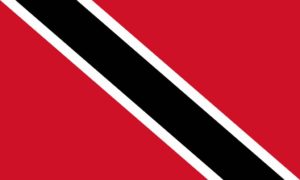Wenceslaus James
On 3 June 1996, Wenceslaus and his co-defendant, Anthony Briggs, were convicted of the murder of a taxi driver, Siewdath Ramkissoon, and sentenced to death, the mandatory punishment for murder in Trinidad and Tobago.
Over two decades on death row
Following his sentence, Wenceslaus has spent over two decades on death row, not knowing when his execution may be carried out.
Living next to the gallows on death row, he has been subject to extraordinary conditions.
Near death experience
On morning in 1999, prison officers came to Wenceslaus’ cell and read out his warrant of execution. He was told that his co-defendant Anthony Briggs would be hanged and that he would then follow. Waiting in a cell opposite the gallows, Wenceslaus heard Anthony’s execution.
At the very last minute, without explanation, Wenceslaus was taken back to his cell. For reasons still unknown to him, he was not executed.
“I could see the rope and hear the snap of the trapdoor. It still haunts me. I feel sick and weak. It was the most horrible experience of my life.”
Appealing his death sentence
Wenceslaus continuously sought to challenge his sentence. After exhausting his avenues of appeal in Trinidad and Tobago, Wenceslaus applied to appeal to the Judicial Committee of the Privy Council (JCPC), the final Court of Appeal for Trinidad and Tobago. Wenceslaus was refused permission to appeal and in 1998 wrote to the Advisory Committee on the Power of Pardon asking for his death sentence to be commuted. He never received a reply.
In 2002, the Inter-American Court of Human Rights found that a number of Wenceslaus’ fundamental rights were breached by the State, both during and after his trial, ordering that Trinidad and Tobago should abstain from executing him. Despite this, Wenceslaus remained on death row where he felt like a forgotten man. Some media outlets even reported he had been executed with Anthony Briggs.
In 2017, The Death Penalty Project began assisting Wenceslaus, alongside UK barrister Amanda Clift-Matthews. We then assisted Wenceslaus’ lawyers in Trinidad, Daniel Khan and Shane Kingston, who filed a constitutional motion challenging his death sentence.
“I could see the rope and hear the snap of the trapdoor. It still haunts me. I feel sick and weak. It was the most horrible experience of my life.”
Death sentence quashed
On 8 June 2020, the High Court of Trinidad & Tobago quashed Wenceslaus’ death sentence. The Court held that carrying out Wenceslaus’ sentence after such an extraordinary amount of time would breach his constitutional rights. This was based on a legal precedent set by the JCPC in one of The Death Penalty Project’s early cases, Pratt & Morgan -v- The Attorney General of Jamaica [1994], which established that a prolonged period of detention under threat of execution amounts to cruel and inhuman punishment.
Since his death sentence was quashed in 2020, Wenceslaus awaited the decision of the High Court to be resentenced.
Release
In November 2023, the High Court resentenced Wenceslaus to 30-years imprisonment. Wenceslaus had already served over 30 years in custody, including approximately 24 years on death row, and was therefore granted immediate release from prison.
See the interview with Wenceslaus on life after death row below:
Video credits: Strictly Legal // Rondell A. Donawa // WESN

Case Timeline
-
Wenceslaus is arrested on suspicion of murder
-
Wenceslaus is convicted of murder and given a sentence of death
-
Court of Appeal in Trinidad & Tobago dismisses Wenceslaus’ first appeal
-
Privy Council refuses Wenceslaus leave to appeal his conviction
-
Anthony Briggs, Wenceslaus’ co-defendant, is executed
-
Inter-American Court of Human Rights finds a number of Wenceslaus’ fundamental rights were breached by the State during and after his trial
-
Court of Appeal dismisses Wenceslaus’ second appeal, after his matter was sent back for the Court to consider fresh evidence
-
The Death Penalty Project becomes involved in Wenceslaus’ matter, assisting his local lawyers Daniel Khan and Shane Kingston
-
High Court quashes Wenceslaus’ death sentence and orders he be resentenced. Wenceslaus remains on death row.
-
Wenceslaus was resentenced by the High Court. He was granted immediate release, as he was resentenced to a term of imprisonment he had already served.

















